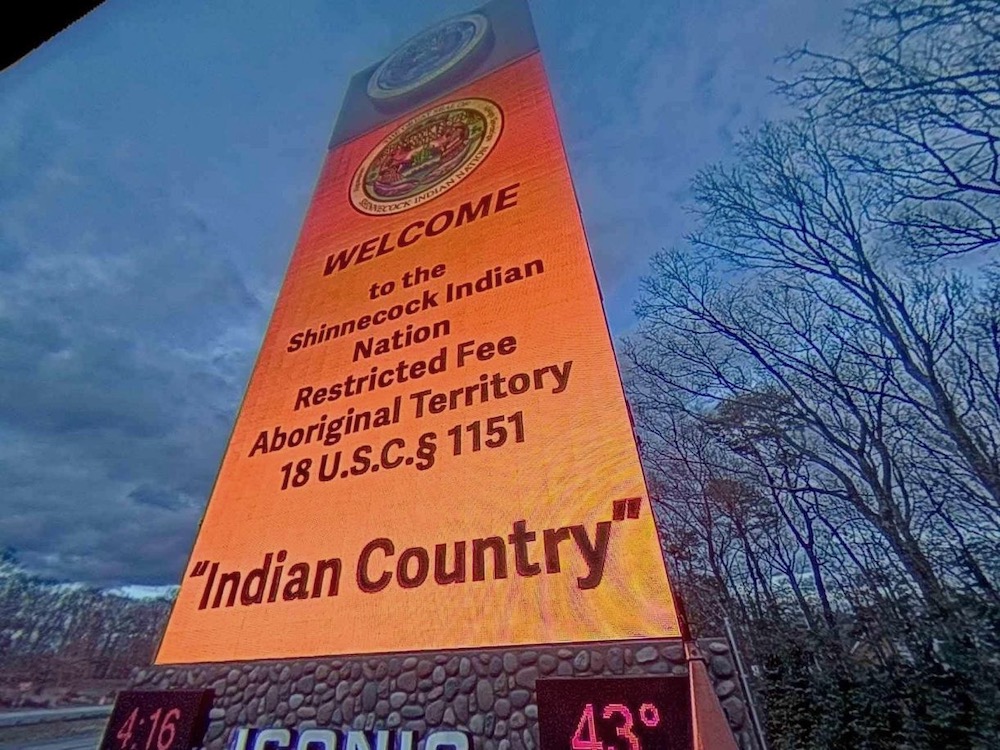
- Details
- By Chez Oxendine
- Real Estate
The Town of Southampton filed suit Tuesday in federal court against the Department of the Interior, challenging a Dec. 23 memorandum that directed the Bureau of Indian Affairs to record the Shinnecock Indian Nation's Westwoods parcel as restricted fee land.
Native-owned land is often split into several categories, the most prominent of which is trust land, or land held in trust with the federal government as part of a reservation. Trust lands lie outside typical state and local jurisdictions. In this instance, the Shinnecock Nation has asserted the parcel in question is restricted fee land — land that is owned by the tribe and subject to restrictions on state and local interference without being attached to an existing reservation.
The complaint alleges that the BIA’s decision memorandum and a subsequent title status report were “arbitrary and capricious.” Southampton says the actions unlawfully stripped the town of its longstanding authority to regulate the roughly 79-acre parcel in Hampton Bays, which the Shinnecock Nation owns in fee simple — meaning with the same rights as a private owner, still subject to local and state jurisdiction.
Shinnecock Vice Chairman Lance Gumbs called the suit a bid to “squeeze every bit of funding” out of the tribe's economic development efforts.
“We don't have the funds as a non-gaming tribe, so these are attempts to basically bankrupt the nation and prevent us from having living standards for ourselves,” Gumbs told Tribal Business News. “We're surrounded by all of this opulence and wealth — it's the lifestyles of the rich and famous for everybody but us.”
The suit is the latest development in an ongoing dispute between the Shinnecock Nation, the state of New York, and the town of Southampton over the Westwoods parcel. The Nation has installed two electronic billboards there and has proposed building a gas station and travel plaza, prompting the town and New York State Department of Transportation to assert that non-tribal permits are required.
The tribe has been fighting attempts to shut down their electronic billboards, and an ongoing injunction against their gas station, since 2019.
In his Dec. 23 memorandum, Newland concluded that Westwoods “is within the Nation's aboriginal territory, that the Nation has resided within its aboriginal territory since time immemorial and has never removed therefrom, and that Westwoods is within the purview of the Nonintercourse Act and is therefore restricted against alienation absent consent of the United States.”
He directed the BIA's Eastern Region to enter the parcel as restricted fee land in the agency's Trust Asset and Accounting Management System, according to his letter to the tribe.
Southampton argues that reclassifying privately held land requires formal rulemaking, public notice and consultation — none of which occurred, according to the complaint. The town's suit seeks to vacate Newland's memorandum and the title status report, a declaratory judgment that Westwoods is not restricted fee land, and a permanent injunction restoring the town's regulatory oversight over the parcel.
Gumbs pledged the tribe would fight all efforts to block their economic development and sovereignty over the Westwoods parcel.
“These two little ventures — the signs and the gas station — are just designed to bring in revenue to the nation to cover our non-grant programs,” Gumbs said. “We've been fighting, and will keep fighting, because our position is that neither the state nor the town have jurisdiction over our tribal lands.”
